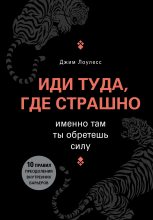building. She had wrinkled her nose at the smell and he had explained that it was due to the autoclaves, which were the sterilization ovens that were located on each of the different levels. In any case, the peaceful scene around her could not be more different from the one the men in the Laptev Bay barracks had experienced.
“They tried to call for help, but the storm knocked out communications for two days. That’s not unusual, even at this time of the year, but normally there isn’t an epidemic to deal with.”
“And the bodies?”
“They burned most of them, fearing the contagion. As soon as we received the distress calls, we immediately sent in doctors to try to contain the situation. Naturally, we hadn’t realized how desperate the situation had become, but when the doctors saw the gravity of the circumstances, they decided to close the barracks and airlift everyone out. They brought them here to Houston for hospitalization—this was just a few days ago, and we’ve managed to keep it out of the news so far. We certainly don’t need another Ebola scare, and we don’t want to make any statements to the press until we understand what we are dealing with. We’ve managed to keep the patients in quarantine, and we got some tissue samples analyzed. So far, all we know is that the contagion seems to be a large virus, one of those megaviruses that have been found in different places around the world in inhospitable environments. This is a new one that has never been encountered before. It’s being called the Laptev hemorrhagic fever virus, or Laptev HFV.”
“And you want the university to help with the research?” asked Oscar.
Angela arched an eyebrow as if to say, Duh! Hello! Why else would I be telling you this?
Oscar lowered his head. “Yes, of course,” he said softly. “We’ll be happy to do what we can to help.”
“Riesigoil, will, of course, donate all of the supplies, and provide ample funding for the research. We need to get to the bottom of this as soon as possible. We certainly don’t want to lose any more of our people.”
“Right,” said Oscar. “Your company has always been generous with the university.” It was a true statement, and the way he said it told Angela that he had no trouble at all in admitting it. This was, after all, Houston, the city with quite possibly the largest concentration of engineers per capita in the world. The big oil and chemical companies were generous in their funding of the universities across the state, and any good university president was well aware of this fact.
“There is one other thing you should know. For now, all drilling and exploration has been halted in that area, of course.”
Oscar looked at Angela, his bushy eyebrow now one long line across the top of his forehead. “But it can’t remain that way,” he said.
“Unfortunately, we only have three months of the year that we can work up there. The Arctic contains a vast amount of oil and gas—enough to make North America energy independent for the foreseeable future. We’ve finally obtained the permits we need to begin drilling, and we’ve invested billions of dollars and moved tons of equipment up there. My CEO tells me that the shareholders will not take kindly to matters if we have to report back that we let an entire season go by without further exploration, and then we cannot do anything for another nine months while the winter rages on.”
“I understand. We will work quickly on this investigation. We’re very fortunate to have the former head of the CDC, Dr. Rhonda Bentley, leading the Infectious Diseases department. I’ll inform her of this decision and I’m sure she’ll get a team right on it,” said Oscar.
Angela sighed imperceptibly with relief. It was the answer she had been hoping to receive, given the urgency of the issue for her company. She would visit her CEO, Stan Sundback, as soon as she returned to her office and let him know.
CHAPTER 3
“Can I play with Opus? Pretty please!”
Molly was so focused that she didn’t glance up from her laptop. She was busy trying to finish writing the essay for her anthropology class, ‘Pre-humans in the Iberian Peninsula’. She was fascinated with the subject and had found some interesting journal articles in the last few days using the new online database that the library had acquired. In one of the articles she was reading how there seemed to be direct evidence that Neanderthals and modern humans had coincided, inhabiting caves only a mile apart, for more than 5,000 years, in northern Spain. In another more ancient cave they had discovered 17 skulls with Neanderthal-like features which were thought to be over 30,000 years old.
It was so fascinating that she was seriously thinking of changing her major from Psychology to Anthropology. How she wished she could go there and be a part of the archaeological discovery teams. Maybe she would do a Master’s degree in Anthro? Maybe she could apply for an NSF grant once she graduated next year…
“Come on, Moll-Moll!” said her brother, interrupting her thoughts. “I’ll just have him out for a little bit. I promise!”
“Hmm? Yeah, sure, go ahead,” she said distractedly. Her younger brother loved the little mouse she had brought home one day from the laboratory animal care facility. She worked there part-time, 10-20 hours per week, cleaning the cages and feeding the mice. The mice were bred for all kinds of experiments, and although some were more intrusive tests, requiring the mice to receive injections or grow tumors which could be studied to find anti-cancer drugs, many mice were used for behavioral studies or as control mice for the tumor studies, which required nothing more of them than to live normal healthy lives so they could be used for comparison to the others. These were the mice she usually cared for.
One day about three weeks ago, one of the graduate students, Kevin, had told her about Opus, though the mouse had not yet been baptized as such. Molly really liked Kevin. It wasn’t just that he was probably closely related to Channing Tatum, as evidenced by his green eyes and gorgeous smile. It was because even though he was obviously busy and had tons of friends who were constantly contacting him on his cell phone, he still made time to explain things and teach her things, unlike the other technicians, some of whom were just plain nasty.
The researchers in the department that studied HIV/AIDS, he explained, were performing a non-intrusive study to see how long it took for the mice to wake up from anesthesia. Sometimes they did benign tests like this to see if there was any way to make this process more tolerable for the little mice. They had tried different methods for waking them, and they had found that the colder the mice were, the more lethal the anesthesia was. So they were trying different methods for keeping the mice warm to see if they could help the mice emerge more healthily from the somniferous effect of the anesthetic.
“We kept him under an electric blanked for several hours afterwards, you see,” explained Kevin. “Otherwise he would be too cold and never wake up.”
“Aw, he doesn’t like being a little penguin!” she exclaimed, obviously upset and reaching out a finger to stroke the soft white fur.
“Well, that’s why we were trying to keep him warm,” he said, flashing her that irresistible smile with little dimples in his cheeks. “We used to just leave the mice to wake up on their own, but this latest test confirmed that if we artificially maintained the mice at a constant 37 degrees Celsius, and allowed them to wake up slowly, they do much better.”
Molly listened enraptured as he explained that the procedure had worked and the mouse was fine, but now, lab protocol dictated, he could not be a part of any further studies, since mice could not be re-used, and once mice had left the kennels where they were kept and had been mixed with other mice, they were not supposed to be returned to their original homes. It was a shame to put him down when he was otherwise healthy, but those were the rules.
“So, there’s nothing wrong with him?” Molly inquired, hoping she didn’t appear stupid.
“Nothing at all. Now that he’s warmed up and woken up, he’s perfectly fine. Our test worked and now we know that it’s better to wake the mice up that way. So he served his purpose and future anesthetized mice will have an easier time coming out of it.”
Molly pictured an incubator with a long, two inch wide electric blanket and the mice all lying down in a long row, their tiny little heads, feet and tails peeking out from top and bottom of the blanket as they slowly recovered from the anesthesia. Or maybe it would be like a sauna, or a resort for mice, all nice and cozy and warm. Perhaps some of them would wake up earlier than the others and start crawling around? Would the researchers also put food and water in there for the early risers? She shook her head at her own silly thinking and took the mouse gently from Kevin. It stretched and gave a small yawn, which made her smile. “So you’re sure there’s nothing unusual about him?” she repeated. “No built-in tumors, no aneurism time bombs or anything?”
Kevin’s brow furrowed and he looked in mock concentration, then he brightened. “He was sterilized as a pup, but nothing else. Off you go, little guy,” he said, taking the mouse back from Molly’s hand.
Just then Tammy, one of the technicians whom Molly really disliked, entered the room.
“Oh, Kevin, there you are,” she said in a breathy voice, batting her pretty blue eyes at him before turning and giving Molly a quick up and down look that was both assessing and dismissive.
Molly took a step back from Kevin even though there was no reason for her to do so—they were doing nothing wrong. But somehow she always felt intimidated by Tammy with her impeccable blonde hair and attractive long eyelashes which she heavily accentuated. Molly seemed to always forget about wearing make-up until she came in contact with someone like Tammy who obviously spent an inordinate amount of time on her appearance.
“Kevin, I need you to come take a look at a situation we have in C8,” Tammy cooed.
Molly noticed that there was no ‘please’ or ‘when you have time.’ Tammy assumed that if he was with Molly it was not important. All pretty girls seemed to think that what they had to say to someone like Kevin was much more interesting than whatever she would have to say, and the realization made a small blush creep over Molly’s face.
“Um,” said Kevin, still holding the mouse.
“I can take him,” said Molly reaching for the mouse. “I have an empty cage back in C12.”
“But the mice aren’t supposed to mix.”
“It’s all right,” she said quickly. “I’ve got a cage that’s been cleaned and it’s separate from the others. I’ll just keep him there for a few hours and then I’ll take him to the Waiting Room if you want.”
Kevin hesitated.
“Kevin,” said Tammy, drawing out the syllables in his name. She was clearly becoming impatient. She strutted over to him and handed him a notebook. “Come on. I need to show this to you now.”
Kevin glanced at the notebook and then turned back toward Molly. “Okay, I guess that’s fine, but please don’t forget to take him to the Waiting Room later. You’ll remember?”
“Of course,” said Molly, accepting the mouse and turning away from Tammy. After Kevin and Tammy left, she took the little guy by the scruff of his neck to place him in a carrying cage which she would use to transport him back to Room C12,


![Бестселлер - Донато Карризи - Сборник "Мила Васкес" [3 книги] - читать в Литвек](/tcover/81/t457381.jpg)

![Бестселлер - Яна Вагнер - Сборник "Вонгозеро" [2 книги] - читать в Литвек](/tcover/45/t457645.jpg)

